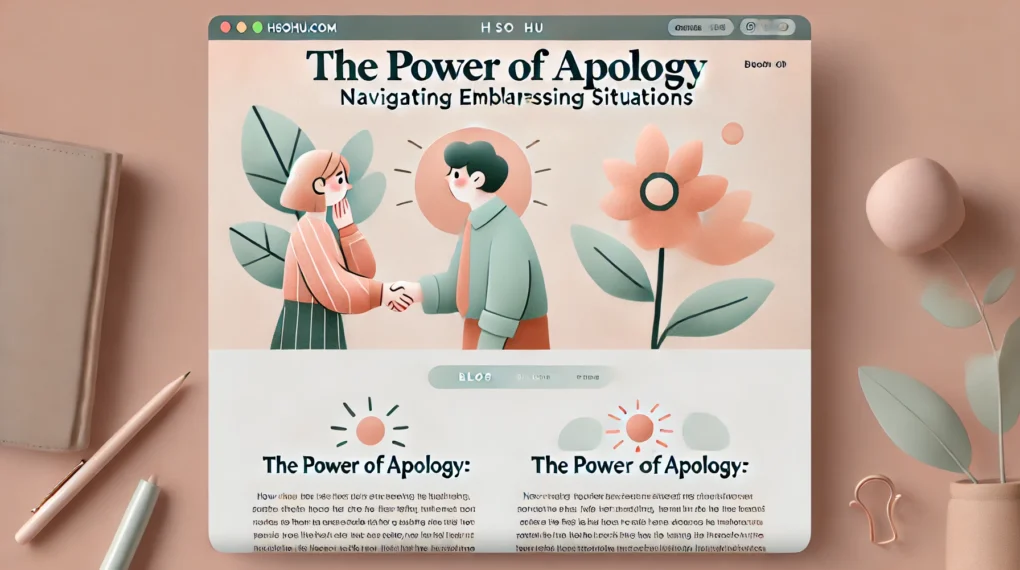Embarrassing moments are a universal experience. A slip of the tongue, a misstep, or an unintended faux pas can leave us feeling exposed as if a spotlight has zeroed in on our misstep. However, the way we navigate these moments, especially through a sincere apology, can transform how we and others remember them.
The Art of a Meaningful Apology
A genuine apology isn’t merely a word or a formality; it’s a tool for mending bonds and reestablishing trust. Here’s how to craft an apology that resonates:
- Acknowledge the Harm: Identify the specific action or comment that caused the hurt. This clarity shows the other person that you’re aware of the impact.
- Express Genuine Remorse: Convey sincere regret for the hurt or offence caused. Empathy often speaks louder than the words you choose.
- Take Responsibility: Avoid explanations that deflect or diminish the mistake. Owning up to the impact of your actions is central to any genuine apology.
- Offer Reparation: When possible, propose a way to make amends. Even small gestures can go a long way.
- Seek Forgiveness: After apologizing, humbly ask for the other person’s understanding and forgiveness.
Moving Beyond the Embarrassment
Apologizing is just one step. Moving past the moment can be its own challenge. Here are a few strategies to help you recover gracefully:
- Practice Self-Compassion: Treat yourself kindly and recognize that everyone makes mistakes.
- Reflect and Learn: Look back on the situation to understand what you can learn from it. This kind of self-awareness helps prevent future missteps.
- Mindful Presence: Focus on the present rather than replaying the moment. This can reduce anxiety and help you refocus.
- Seek Support: Sharing your feelings with a trusted friend or therapist can provide reassurance and perspective.
- Let Go: Release the embarrassment, focusing instead on future interactions and experiences.
Overcoming Social Anxiety
For those with social anxiety, embarrassing situations can feel especially challenging. Here are some techniques to manage anxiety and bolster confidence:
- Challenge Negative Thoughts: Replace self-critical thoughts with positive affirmations and realistic perspectives.
- Gradual Exposure: Start with small social interactions, gradually increasing your comfort in social settings.
- Practice Mindfulness and Relaxation Techniques: These methods can help you stay grounded during stressful situations.
- Seek Professional Help: Therapy can address underlying issues, providing coping strategies tailored to your needs.
A sincere apology combined with a compassionate, growth-oriented mindset can transform even the most awkward situations into opportunities for self-improvement and connection. By embracing vulnerability and learning from these moments, we can foster deeper relationships and build a resilient self.


